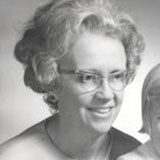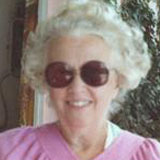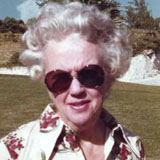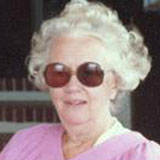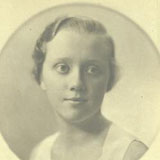Biography: Dr. M. Irené Ferrer

Year: 1943
Achievement: Dr. Ferrer was the first woman to serve as chief resident in Medicine at Bellevue Hospital, Columbia University.
As a young physician, Dr. Irené Ferrer was the first woman to serve as chief resident at Bellevue Hospital, where she was given a prestigious opportunity: to work with a leading team of cardiologists who were developing the cardiac catheter. Dr. Ferrer played a vital role in the Nobel prize-winning project, which was also an important step in the development of open-heart surgery.
M. Irené Ferrer graduated from Bryn Mawr in 1937. She received her M.D. from Columbia University College of Physicians and Surgeons in 1941, and completed her internship at Columbia University's Bellevue Hospital in 1943. From 1943 to 1944 she was the first woman Chief Resident in Medicine at Bellevue, where she had the opportunity to work with a leading team of cardiologists, opportunities unlikely to have been given to a woman physician if it hadn't been for the absence of male candidates during World War II. Dr. Andre Cournand and Dr. Dickinson Richards had been working together since the early 1930s, studying ways to measure the output of the heart, and they asked Dr. Ferrer to help them evaluate a catheter device they were working on. Together, the team developed and tested the cardiac catheter which won Cournard and Richards the Nobel Prize in 1956.
After two years as an assistant in medicine and a fellow in therapeutics at New York University College of Medicine, Dr. Ferrer returned to Columbia University College of Physicians and Surgeons in 1946. She has stayed there for the rest of her career, first appointed assistant in medicine, then rising through the ranks of instructor and associate to assistant professor of clinical medicine in 1951. She was made full professor in 1967.
Throughout this period, Dr. Ferrer also held hospital appointments at Bellevue Hospital, Presbyterian Hospital, and the Roosevelt Hospital. From 1947 to 1970, she was also assistant attending physician and cardiologist at French Hospital. In 1953, Dr. Ferrer was named director of the Electrocardiagraphics Department at Doctors Hospital, a position she held for thirty-three years. From 1956 to 1986 she was also director of the Electrocardiagraphic Laboratory at Presbyterian Hopsital. She has served as an honorary consultant at Presbyterian and St. Luke's-Roosevelt since 1986 and is professor emeritus of clinical medicine at Columbia University.
In the late 1950s Dr. Ferrer became a personal and professional mentor to Marianne J. Legato, a young student who had been forced to drop out of medical school after her father had withdrawn his support for her choice of a career. Dr. M. Irené Ferrer and her brother, Dr. Jose Ferrer (a surgeon at Columbia University College of Physicians and Surgeons), provided instrumental support to get Legato back into medical school and build her career. Dr. M. Irené Ferrer even visited the dean of New York University to persuade him to allow Legato to return to school and personally paid for her tuition. Dr. Legato is now the founder and director of the Partnership for Gender-Specific Medicine at Columbia University and a leading expert on women and heart disease. She describes Ferrer's approach to medicine as a "combination of intellectual brilliance and real love of the patient...a winning combination for those of us who were lucky enough to be her students."
Dr. Ferrer was a member of the board of directors of the New York Heart Association and served on the editorial boards of Circulation, American Heart Journal, and Chest. She was editor-in-chief of Current Cardiology in 1977 and of the Journal of the American Medical Women's Association from 1977 to 1981.
Dr. M. Irené Ferrer received the College of Physicians and Surgeons Distinguished Service Award in 1989 and their Alumni Association Gold Medal for distinguished academic accomplishment in medicine in 1993. Special among her many honors is the M. Irené Ferrer Professorship in Gender-specific Medicine at Columbia University, for which the Partnership for Gender-Specific Medicine, founded and directed by Dr. Marianne Legato, is raising funds.
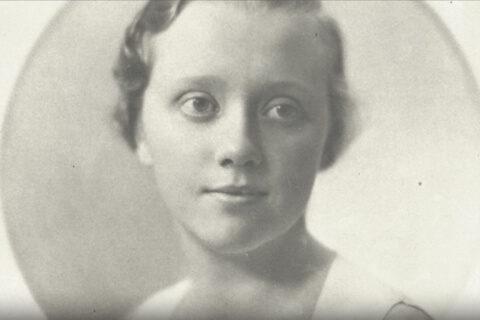
Asterix Dr. M. Irené Ferrer
Asterix Dr. M. Irené Ferrer
As a young physician, Dr. Irené Ferrer was the first woman to serve as chief resident at Bellevue Hospital, where she was given a prestigious opportunity: to work with a leading team of cardiologists who were developing the cardiac catheter. Had it not been for the lack of male candidates during World War II, it is unlikely that a woman physician would have been given such a chance. But Dr. Ferrer played a vital role in the project. The catheter was an important step toward open-heart surgery and earned the team a Nobel Prize in 1956. Dr. Ferrer also collaborated with IBM to make computerized interpretation of electrocardiograms possible for the first time. From 1953 to 1986, she was director of the Electrocardiographics Department at Doctors Hospital. Since 1986, she has served as an honorary consultant at Presbyterian and St. Luke's-Roosevelt and is professor emeritus at Columbia University. Special among her many honors, is the M. Irené Ferrer Professorship in Women's Health and Gender-specific Medicine at Columbia University, established in her name by the Partnership for Women's Health founded and directed by Dr. Marianne Legato. Dr. Marianne Legato was one of the many younger physicians Dr. Irené Ferrer mentored in an extraordinary way throughout her career. When Marianne Legato left medical school because she could not afford the tuition, Dr. Ferrer convinced the Dean to let Legato return and paid for the rest of her education. (Dr. Marianne Legato): 'And Dr. Ferrer herself went back and personally called on the Dean of NYU and said, 'I'm gonna pay for this, young woman's education. I will guarantee a good performance, and I want you to take her back', which he did. After that I became really a member of the Ferrer family, and they were a wonderful, wonderful force in my own life and in my own development. It was a wonderful family to which I had sort of been added, and they really made my career possible.' Dr. Ferrer's contribution to the development of the cardiac catheter and the compelling example she gave to medical students was based on her extraordinary relationship with her patients. (Dr. Marianne Legato): 'She became devoted to many of her patients, whom she dearly loved. Her love of patients was really remarkable and one of the things about her that made her so engaging as a role model for us. So that combination of intell




